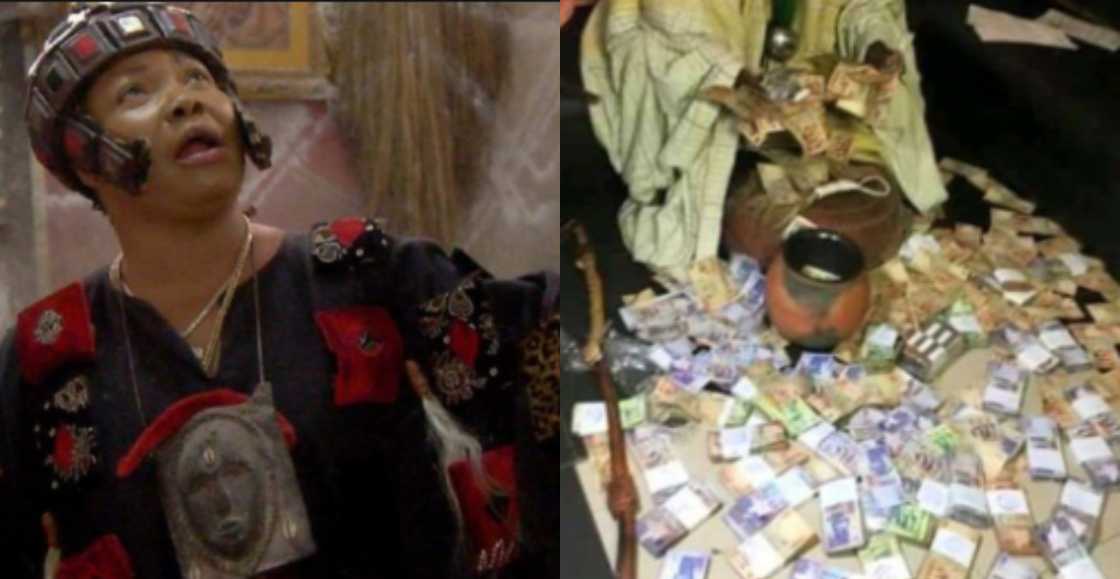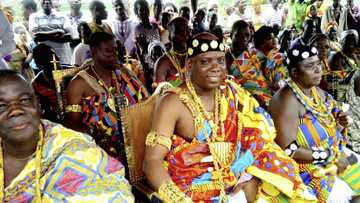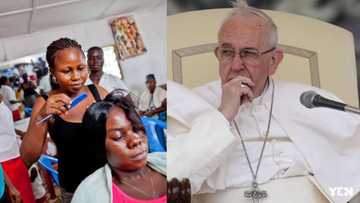Money rituals: A look at why the youth are resorting to a desperate move for wealth
In their desperation to join the ranks of the affluent in society, wannabe-rich-quick young Ghanaians are resorting to money rituals for wealth to live ostentatious lifestyles.
Our manifesto: This is what YEN.com.gh believes in
The recent murder of 10-year-old Ishmael Mensah Abdallah by teenagers Felix Nyarko, 16, and Nicholas Kini, 18, who allegedly intended to use his body parts for money rituals is one of many rots gaining root in society.
The grisly killing of Abdallah, which occurred in April this year, agitated Ghanaians' moral foundations, arousing concerns about how society, religious groups, media, and parents have failed as authorities in upholding acceptable traditions and values of behaviour that align with Ghanaian culture.
But long before Felix Nyarko and Nicholas Kini allegedly murdered Ishmael Mensah Abdallah for money rituals, wannabe-rich-quick young people had been engaging in questionable dealings such as scamming including internet fraud and so-called money-doubling rituals for wealth.

Source: UGC
According to the general secretary of the Mortuary Workers Association of Ghana, Richard Kofi Jordan, some of these questionable activities for wealth or money rituals involve the use of body parts of murdered victims or water used to bathe dead people to increase the potency of the rituals.
Not limited by geography, some young people travel to countries known for performing efficacious money rituals to fund their distinct lifestyles of luxurious cars, mansions, and expensive trips abroad to the envy of their age-mates.
The cause of a worsening vice
The practice of money rituals by people in many African countries particularly Nigeria, Benin, Togo, Ghana, and Tanzania where body parts of albinos are a cash crop, has been attributed to multiple factors, but dominant are unemployment, corruption, poverty, greed, flashy lifestyles of celebrities, diminishing moral and cultural values enabled by the media - a situation worsening with time as religious leaders and families slack in advancing ethical and moral standards in an internet age.
Although the phenomenon manifests in several forms, Sakawa which combines modern internet-based fraud with African traditionalist rituals is popular in Ghana.
The practice may involve the use of victims' fingernails, carrying corpses, making incisions on body parts, and sleeping in the cemetery to complete the rituals.
The media that set, drive agendas, and develop programmes for viewers, have been blamed by a section of Ghanaians due to the seeming increase of spiritualists and mallams on television, who lure and promise unreasonable get-rich-quick avenues to the unsuspecting youth.
Curbing the vice
Although the chairman of the National Media Commission (NMC), Yaw Boadu-Ayeboafo, admits the importance of the commission's role in safeguarding content in the broadcasting sphere, he believes the passage of the Broadcasting Bill into law will be a more effective solution, according to a report by myjoyonline.com.
The Bill when passed into law will provide comprehensive legislation on broadcasting services regulated by the NMC and the National Communications Authority (NCA) in a manner consistent with the constitution.
However, a law that regulates content in the Ghanaian media space would just be another rule in the statute books if it's not enforced.
Fixing the Country/Attitude
While governments and institutions charged with enacting laws must ensure the laws are enforced and sanctions applied to deviants without fear or favour, the citizens must collectively and willfully protect the constitution and uphold acceptable values that shape the moral fibre and soul of the nation.
The government must also ensure that the entertainment system (which includes the media; literature, music, radio, television, others) and educational system align with the nation's cultural machinery or belief systems that shape acceptable and progressive mindsets against the practice of money rituals for wealth.
In other news, YEN.com.gh previously reported on Afua Akoto, a woman who is struggling to fend for herself and two grandchildren since their parents left for the city in search of greener pastures.
Akoto, aged 70, was abandoned by her husband some forty years ago and had since been struggling and juggling between one job and the other to provide for the family.
The septuagenarian who is growing feeble with time due to ageing lives with her two grandkids in a dilapidated mudhouse at Dadease in the Sekyere Kumawu District in the Ashanti Region.
Enjoy reading our stories?
Join YEN.com.gh's Telegram channel!
Download YEN's news app on Google Play now and stay up-to-date with major Ghana news.
Source: YEN.com.gh





